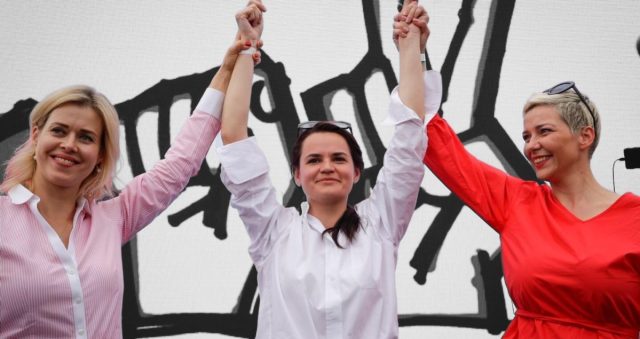
The former Soviet police state and the Caribbean nation are as different as the citizen alliances challenging their autocracies. Here’s an informed comparison from the ground.
By Caracas Chronicle – Pablo Angulo Troconis
September 10th, 2020: at the time I write this, Belarus has seen its fourth straight weekend of mass scale protests. Maria Kolesnikova, one of three women part of the troika challenging Lukashenko and the only one still in Belarus, has been detained. The UN Security Council met on Friday, September, 4th, to discuss the human rights situation in Belarus. There are several accounts of women being repressed after participating in women’s marches in Minsk.
The resolve of the people of Belarus is inspiring and it’s reported that some members of the Venezuelan opposition see it as an example to follow. The comparisons between Venezuela and Belarus abound; the last example of such arguments came during a UN Security Council session, when the Deputy Permanent Representative of the Russian Federation to the UN, Ambassador Dimitry Polanskiy, sarcastically compared Svetlana Tikhanovskaya to Juan Guaidó: “We hear claims that [Svetlana Tikhanovskaya] won the elections, but who has verified it? Is this a new reality when anyone could claim he or herself (sic) is an elected President? Is this a new Guaidó-type scheme applicable to all electoral situations in which the outcomes are not acceptable to certain countries?”
Certainly, there are multiple parallels that can be drawn (something that my wife, a Belarusian native, and I always discuss), yet there are fundamental differences to look at, as well. I will focus on two: 1) The nature of the regimes and 2) The nature of the oppositions.
On the Regimes
Alexander Lukashenko is the head of an old-fashioned dictatorship and a police state, period. While there’s no doubt that Venezuela is a dictatorship, Maduro is the head of a conglomerate of alliances with sometimes competing interests where the military predominate, along with the leadership of the United Socialist Party of Venezuela (PSUV), other figures of the public administration and a new wealthy class of political origin. Venezuela is part police state, part oil state, and part kleptocracy operating in populist structures and narratives.
Still, in both countries, elections take place. The only free and fair election in the history of Belarus took place in 1994, which Lukashenko won. In Venezuela, the last presidential election of 2018 was neither free nor fair, a trend established since Chávez. Ask a Belarusian, what’s the likely outcome of a presidential election? The answer will be consistent. Ask a Venezuelan, what’s the likely outcome of a presidential election? The answer will also be consistent. If elections are not competitive, and there’s a widespread consensus, both internally and internationally, that they do not hold up to democratic standards, why do both regimes keep holding elections? Is it that both regimes need to keep the façade of a democratic system to the international community? That’s only part of the answer.
…

